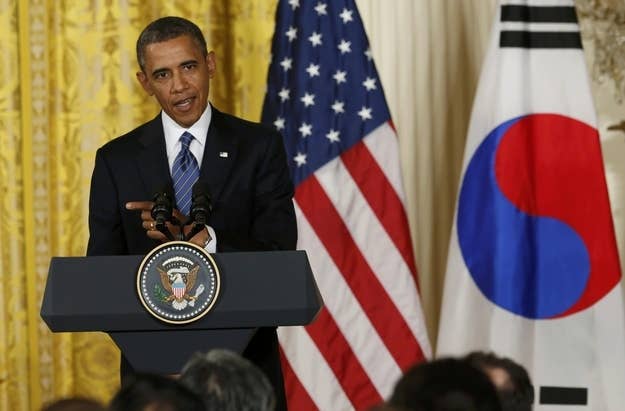
WASHINGTON — President Obama appeared to intensify his rhetoric on Syria on Tuesday, comparing the situation to U.S. military action in Libya and to the operation that took out Osama bin Laden.
"You suggested even in your question a perceived crossing of a red line," Obama said in response to a reporter's question during a joint press conference with South Korean President Park Geun-hye. "The operative word here is 'perceived.' What I've said is that if we have evidence that there has been the use of chemical weapons in Syria, but I don't make decisions based on 'perceived' and I can't organize international coalitions around 'perceived.'"
"We've tried that in the past, I might add, and it didn't work out," Obama said in an apparent reference to the Iraq War. "We want to make sure that we have the best analysis possible, we want to make sure that we are acting deliberately."
Obama suggested that action of one kind or another would soon be taken.
"But I would just point out that there have been several instances over the course of my presidency where I said I was going to do something and it ended up being done," he said. "There were times when there were folks on the sidelines wondering 'why hasn't it happened yet?' and 'what's going on'…but in the end, whether it's bin Laden or Qaddafi, when we say we're taking positions I would think at this point the international community has a pretty good sense that we typically follow through on our commitments."
Critics allege Obama's red line in Syria is at best blurry and at worst moving rapidly backwards after the sarin gas discovery that kicked off this week's investigation. A senior White House official rejected that claim Monday, saying the line is where it's always been: the use of chemical weapons by Assad's regime.
But the official also raised the specter of Iraq's reported WMD from 2003 to justify its actions since the sarin discovery. The administration has subtly cited the faulty intelligence that led to the Iraq War over and over when explaining why it's waiting for hard evidence that Assad's regime was responsible for the sarin discovered on the Syrian battlefield. The official said it was unlikely the sarin came from the rebels, but wasn't ready to say it came from Assad until the investigation has ended.

